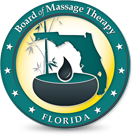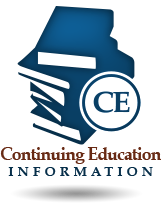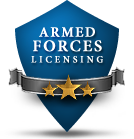Continuing education courses offered must meet minimum standards for continuing education. Courses in certain subject area may require review before they are able to be offered.
Minimum Requirements for All Courses:
- Have stated learner objectives with the amount of time spent for each objective.
- Contain discrete subject matter for each learner objective.
Each subject matter presented should be specific to a learner objective of the course. Subject matter must be current and accurate and must include appropriate citation(s). - Provide the teaching method(s) used for each subject matter. Teaching methods must use principles of adult education and should address more than one learning style.
- Include an evaluation of student mastery of each learning objective.
General (Instruction Hour) Courses – Requirements and Approval Process
General (instruction hour) courses must meet minimum requirements for all courses.
For general (instruction hour) courses that are not provided by in-person instruction, the required evaluation must be graded by the instructor.
Delivery Method
General (instruction hour) courses may be delivered in the following ways:
- Correspondence
- Home study
- Video or digital media
- Distance learning (e.g. webinars, self-guided web courses)
- In-person instruction
The delivery method is specified when submitting your course application; options presented to you when submitting your course application fall into one of the delivery methods above.
Approval Process
- Submit a course application through CEBroker.
- If you have applied but have not yet been approved as a provider, attach a complete Course Offering Data Form B to your course submission.
Hands-On (Classroom Hour) Courses, Focused on and Relevant to Massage Therapy Techniques, Skills, and Protocols
Hands-on (classroom hour) courses must meet minimum requirements for all courses, and must be focused on and relevant to massage therapy techniques, skills and protocols as defined in 480.033(3), Florida Statutes
Hands-on (classroom hour) courses are evaluated based on their scope relative to the definition of massage therapy prior to approval.
Delivery Method
Hands-on (classroom hour) courses must be delivered in an in-person setting.
The delivery method is specified when submitting your course application; options presented to you when submitting your course application fall into one of the delivery methods above.
Approval Process
- Submit a course application through CEBroker. Be sure that the course title and description of the course describe course material which is bounded within the definition of “massage,” as defined in 480.033(3), Florida Statutes.
- If you have applied but have not yet been approved as a provider, attach a complete Course Offering Data Form B to your course submission.
Your course will be reviewed to ensure that the course material presented is focused on and relevant to massage therapy techniques, skills and protocols. Courses that are not focused on and relevant to massage therapy techniques, skills, and protocols will not be approved.
You will be asked for additional information or to submit additional materials if it cannot be determined that your course falls within the bounds of the statutory definition of massage, or if the course appears to fall below minimum standards for continuing education courses.
Courses may be presented to the board for review if additional requested information or documentation fails to demonstrate that the course is focused on and relevant to massage therapy techniques, skills, and protocols, or if the course otherwise falls below minimum standards for continuing education courses.
Human Trafficking Awareness Courses
Human trafficking awareness courses are considered a type of instruction hour course, must meet minimum requirements for all courses, and must address:
- Both sex and labor trafficking,
- How to identify individuals who may be victims of trafficking
- How to report cases of human trafficking, and
- Resources available to victims
Human Trafficking courses require also documentation for instructors which demonstrate their qualifications to teach human trafficking awareness by training, experience, or a showing of good cause.
Delivery Method
Human Trafficking Awareness (instruction hour) courses may be delivered in the following ways:
- Correspondence
- Home study
- Video or digital media
- Distance learning (e.g. webinars, self-guided web courses)
- In-person instruction
Approval Process
- Submit a course application through CEBroker.
- Attach course materials and documentation of instructor qualifications (e.g. certifications, Curriculum Vitae, documentation of field experience) to your submission.
DO NOT submit Course Offering Data Form B for this course. Course Offering Data Form B will not be considered as adequate documentation for this course type.
Your course will be reviewed to ensure that the information provided is accurate and addresses all required areas. Courses that do not address the required areas will not be approved.
You will be asked for additional information or to submit revised materials if:
- The course instructor does not appear to be qualified or qualifications submitted are unclear.
- Course materials do not address all required areas or fall below minimum standards for continuing education courses.
Courses may be presented to the board for review if submitted revisions fail to demonstrate instructor qualifications, address all required areas, or fall below minimum standards for continuing education courses.






